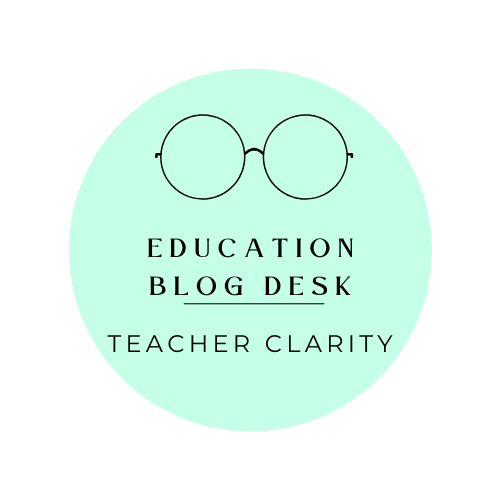Building Student Agency
Building student agency is a powerful approach to fostering lifelong learning, as it empowers students to take ownership of their educational journey and develop essential skills that extend far beyond the classroom. By cultivating agency, educators create an environment where students become active participants in their learning process, rather than passive recipients of information.
What Does Student Agency Mean?

Student agency refers to the capacity and autonomy of learners to make meaningful choices, set goals, and take responsibility for their education. When students have agency, they develop a sense of ownership, curiosity, and self-direction, which are crucial elements in becoming lifelong learners. This shift from traditional teacher-centric models to a student-centered approach recognizes the inherent capabilities and potential of each learner. (Shah, Promoting student agency: Nurturing Tomorrow’s Independent Thinkers 2024)
Why is Student Agency Important?
Enhanced Motivation and Engagement
One of the primary ways student agency fosters lifelong learning is by increasing intrinsic motivation. When students have control and power over their learning, they are more likely to engage enthusiastically with the material and develop genuine interest in the subject matter. This intrinsic motivation is a key driver of lifelong learning, as it encourages students to continue seeking knowledge and growth long after their formal education has ended. (Shah, Promoting student agency: Nurturing Tomorrow’s Independent Thinkers 2024)
Deeper Learning
Moreover, student agency promotes deeper learning experiences. By actively exploring concepts, asking questions, and making connections, students develop a deeper understanding of the subject matter. This depth of understanding enables them to apply their knowledge to real-world contexts, a crucial skill for lifelong learners who must adapt to ever-changing environments. (Shah, Promoting student agency: Nurturing Tomorrow’s Independent Thinkers 2024)
Improve Problem-Solving Skills
The development of critical thinking, creativity, and problem-solving skills is another significant benefit of student agency. As students learn to identify and solve problems independently, they cultivate the ability to think critically and creatively, skills essential for navigating the complexities of life beyond the classroom. These skills empower learners to approach new challenges with confidence and adaptability, key traits of lifelong learners. (Shah, Promoting student agency: Nurturing Tomorrow’s Independent Thinkers 2024)
Increased Autonomy and Responsibility
Furthermore, student agency cultivates autonomy and responsibility. By focusing on goal setting, reflection, and personal growth, students learn to manage their time effectively, prioritize tasks, and take ownership of their learning outcomes. These self-management skills are invaluable for lifelong learners, who must continually adapt to new situations and pursue knowledge independently. (Shah, Promoting student agency: Nurturing Tomorrow’s Independent Thinkers 2024)
Lifelong Learning Mindset
Perhaps most importantly, student agency fosters a lifelong love for learning[1]. When students actively participate in their education and have the freedom to explore their interests, they develop curiosity beyond the classroom. This curiosity becomes the foundation for lifelong learning, driving individuals to seek knowledge, adapt to new challenges, and continuously grow throughout their lives. (Shah, Promoting student agency: Nurturing Tomorrow’s Independent Thinkers 2024)
Model Skills for the 21st Century
The main aim of education is to equip students for their future and the experiences awaiting them. The skills and advantages fostered through student agency will empower learners to succeed and flourish throughout their educational path, professional lives, and, above all, in life itself. (Shah, Promoting student agency: Nurturing Tomorrow’s Independent Thinkers 2024)
Educators play a crucial role in nurturing student agency and, by extension, fostering lifelong learning. By creating a classroom environment that values student voice and choice, teachers can guide learners to become self-directed and empowered. (Main, The role of student agency in fostering lifelong learners 2024) This involves providing students with opportunities to engage meaningfully with material, make decisions about their learning process, and reflect on their progress.
Promoting Student Agency
Encourage student agency in the classroom is vital for nurturing lifelong learners and helping students take control of their educational journey. Here are a few effective strategies teachers can use to enhance student agency:
Provide Choices and Decision-Making Opportunities
One of the most effective ways to foster student agency is by offering choices throughout the learning process. This can include:
- Allowing students to select their reading materials or topics for projects. (Pearson, 12 strategies to promote student agency 2023)
- Providing options for how students demonstrate their knowledge (e.g. presentations, written reports, videos) (Pearson, 12 ways to promote Student Agency: Blog: Moreland 2023)
- Letting students choose their seating arrangements or learning locations within the classroom (Hartly, How can the physical design of a classroom foster student agency? – edspaces 2024)
By giving students the power to make decisions about their learning environment and process, we encourage them to take responsibility for their education and develop critical thinking skills.(Hartly, How can the physical design of a classroom foster student agency? – ed-spaces 2024)
Create Flexible Learning Spaces
Designing flexible learning environments can significantly contribute to student agency:
- Incorporate various seating options, such as standing desks or comfortable reading corners (Hartly, How can the physical design of a classroom foster student agency? – ed-spaces 2024)
- Create collaborative spaces for group work and individual reflection areas (Hartly, How can the physical design of a classroom foster student agency? – ed-spaces 2024)
- Use modular furniture that can be rearranged to support specific learning goals and projects (Hartly, How can the physical design of a classroom foster student agency? – ed-spaces 2024)
These flexible spaces allow students to adapt their environment to their learning needs, promoting autonomy and self-regulation. (Hartly, How can the physical design of a classroom foster student agency? – edspaces 2024)
Implement Student-Led Learning Experiences
- Encouraging student-led learning is a powerful way to foster agency:
- Incorporate inquiry-based learning and student-driven projects (Hartly, How can the physical design of a classroom foster student agency? – ed-spaces 2024)
- Allow students to set their own learning goals and track their progress (Pearson, 12 ways to promote Student Agency: Blog: Moreland 2023)
- Use open-ended research tasks where students can choose specific topics within a broader subject (Shah, Promoting student agency: Nurturing Tomorrow’s Independent Thinkers 2024)
These approaches empower students to explore their interests and take ownership of their learning process. (Hartly, How can the physical design of a classroom foster student agency? – ed-spaces 2024)
Cultivate a Growth Mindset
Promoting a growth mindset is essential for developing student agency:
- Encourage risk-taking and view mistakes as learning opportunities[2]
- Use language that emphasizes effort and progress rather than fixed abilities[6]
- Provide opportunities for students to reflect on their learning and set new goals[3]
By fostering a growth mindset, students develop resilience and the confidence to tackle challenges independently[2].
Ask Thought-Provoking Questions
Instead of always providing direct feedback, ask questions that encourage students to think critically about their work:
- Use open-ended questions like “Why did you choose to…?” or “Is there a more efficient way to…?”[5]
- Encourage students to give themselves feedback by reflecting on their choices and processes[5]
- When students are stuck, ask them what tools they have to help them get unstuck[5]
This approach helps students develop problem-solving skills and take ownership of their learning process[5].
Build Trust and Responsibility
Creating a classroom culture of trust is fundamental to fostering student agency:
- Explicitly tell students that you trust them and follow through with actions that demonstrate this trust[5]
- Assign classroom responsibilities and involve students in decision-making about classroom management[2]
- Provide opportunities for students to lead discussions or teach their peers[3]
By showing students that you trust them, you encourage them to take responsibility for their actions and learning[5]. Implementing these strategies can help create a classroom environment that nurtures student agency, leading to more engaged, confident, and capable learners who are better prepared for future challenges and lifelong learning.
Promote Self-Regulation
Encourage self-regulation in the classroom is essential for helping students handle their thoughts, feelings, and actions. Here are some practical approaches teachers can use:
Create a Supportive Environment
Establish Routines and Structure
- Implement consistent daily routines, such as morning meetings, to build community and check in on students’ emotional states[9]
- Use transition signals like chimes to help students shift between activities[9]
- Create a predictable environment with clear rules and expectations[2]
Design Flexible Spaces
- Incorporate a “peace corner” with calming tools for students to self-regulate[5]
- Provide various seating options and work areas to accommodate different needs
Teach Self-Regulation Skills
- Develop Emotional Awareness
- Conduct daily emotion check-ins using worksheets or discussions[6]
- Teach students about their brains and how emotions affect learning[2]
- Expand students’ emotional vocabulary[2]
Introduce Coping Strategies
- Teach simple breathing exercises for calming down[5]
- Incorporate brain breaks with sensory activities to reduce stress[5]
- Use games like “Red Light, Green Light” to practice self-control[5]
Promote Metacognition
- Use think-alouds to model inner thought processes[6]
- Encourage self-reflection and goal-setting[2]
- Teach planning and time management skills[3]
Provide Tools and Techniques Utilize Visual Aids
- Display posters with self-regulation strategies[6]
- Use timers to help with time management[5]
- Implement progress monitoring systems, such as charts or rubrics[4]
Incorporate Movement and Music
- Use rhythmic activities to practice self-control[6]
- Integrate movement breaks throughout the day
Leverage Literature
- Read stories that focus on coping strategies and emotional management[6]
- Discuss characters’ emotions and problem-solving approaches
Foster Student Agency
Offer Choices
- Allow students to choose how they demonstrate learning[1]
- Provide options for seating or work locations[1]
Encourage Self-Monitoring
- Teach students to use self-assessment tools[3]
- Implement peer feedback systems
Promote Problem-Solving
- Guide students through the problem-solving process[7]
- Encourage students to develop their own self-regulation plans[7]
By implementing these strategies, teachers can create a classroom environment that supports the development of self-regulation skills, ultimately fostering students’ ability to manage their learning and behavior independently.
Conclusion
Building student agency is a transformative approach to education that equips learners with the skills, mindset, and motivation necessary for lifelong learning. By empowering students to take an active role in their education, we prepare them not only for academic success, but also for a future where adaptability, critical thinking, and continuous learning are essential. As we continue to reshape education for the 21st century and beyond, prioritizing student agency is crucial for preparing students to thrive in a rapidly evolving world.
Reference
Hartly, S. (2024, March 4). How can the physical design of a classroom foster student agency? – edspaces. EDspaces – Pedagogy, Space & Tech. https://ed-spaces.com/stories/how-can-the-physical-design-of-a-classroom-foster-student-agency/
Main, P. (2024, September 16). The role of student agency in fostering lifelong learners. RSS. https://www.structural-learning.com/post/student-agency
Pearson, J. (2023a, April 23). 12 ways to promote Student Agency: Blog: Moreland. Moreland University. https://moreland.edu/resources/blog-insights/empowering-students-for-success-12-practical-strategies-to-promote-student-agency#:~:text=Provide%20students%20with%20choice%20in,success%20in%20college%20and%20career.
Pearson, J. (2023b, May 2). 12 strategies to promote student agency. AMISA. https://www.amisa.us/post/12-practical-strategies-to-promote-student-agency#:~:text=Here%20are%2012%20practical%20examples%20that%20come,appropriate%20pace%20for%20their%20work%20and%20reading.
Shah, D. (2024, August 27). Promoting student agency: Nurturing Tomorrow’s Independent Thinkers. Class card. https://www.classcardapp.com/blog/empowering-student-agency-nurturing-tomorrows-independent-thinkers
